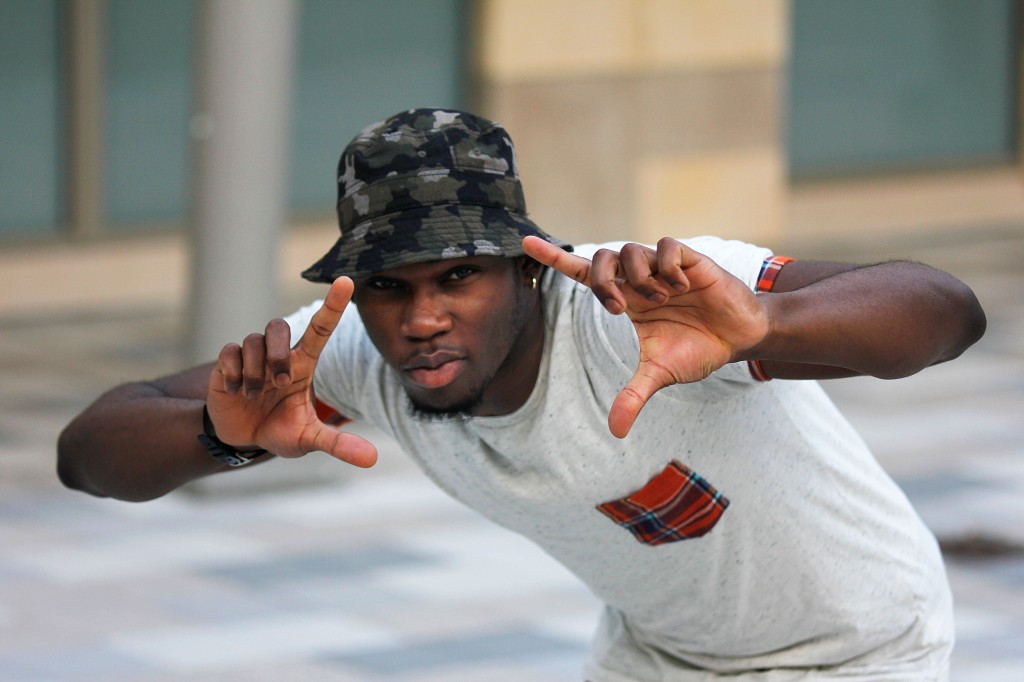
As I interviewed student filmmaker Shola Gbemi on Monday afternoon regarding his forthcoming documentary, “Emerge,” I was convinced that he was a man headed in the right direction.
A large part of our conversation explored the current fight for social justice; my mind could not help but race with concern over the riots observed in New York City, Berkley, Ferguson and, most recently, Baltimore. However, even the most turbulent movements can be united.
“This is a generation where it is necessary for the youth to take a stand for social justice,” said Gbemi, a senior majoring in psychology. “How do we do it in a meaningful way?”
Gbemi’s answer to that question is “Emerge,” set to be released May 1 on YouTube. His film explores the significance of the fight for social justice, the use of social media by today’s youth, hip-hop culture’s influence on the Black experience and the development of self-identity. “Emerge” delves into the mind of the young Queens native during his journey to complete his first fiction novel. Although the film’s primary purpose is to promote Gbemi’s novel, the depth to which the documentarian investigates the Black experience in the United States lends “Emerge” the authority to stand alone as a powerful social commentary.
“’Emerge’ was the result of a lot of conversations I had with myself,” Gbemi said. “I’m confident that anyone who takes the time to watch this film won’t finish it without rewinding at least once.”
The documentary also examines the structure of minority culture that is shaped by influential minority leaders, from writers like Maya Angelou and Langston Hughes to hip-hop artist Kendrick Lamar. To Gbemi, influential figures like these do a great deal of justice for minority culture by depicting the Black experience in a positive light. In Gbemi’s perspective, Kendrick Lamar is more than just a rapper; he is a poetically charged musician capable of touching base with his audience in a thought-provoking and soul-stirring way.
Writing has been a passion for Gbemi since he started writing poetry in high school. His goal was to publish a major work by the time he reached 21-years-old as his rite of passage into adulthood. Gbemi’s novel, set to be finished sometime in June, follows the narrative of two African-American college students trying to derive purpose from their experiences at school. The novel coalesces Gbemi’s personal reflections and the experiences that he has collected from both his life and his friends’ lives.
While growing up in Queens has added to Gbemi’s unique perspective by exposing him to a little bit of everything, he attributes much of his success to his mother. Gbemi states that despite struggling financially, she provided everything that he needed growing up and that without her, he probably would not have ended up attending Binghamton University.
“To this day I’ve seen my mom struggle financially too much,” Gbemi said. “Seeing that pain makes me work hard to change. Her struggles are the building blocks to my goals and motivations.”
Gbemi, however, has no intention of following writing or filmmaking professionally. He aims to become a family and adolescent therapist and even dreams of starting his own non-profit organization for young men of color, speaking to his passion for promoting community and minority culture. Gbemi is also the winner of multiple leadership awards, with his most recent, the Council Foundation Award for outstanding leadership, to be awarded on May 1.
Advice from Marion Jeffries, the president of NAACP Astoria, has given Gbemi the motivation to continue his work.
“She told me that if I can use my talent to portray my people in a positive way, I’ll be doing them more social justice than I can fathom,” he said.


